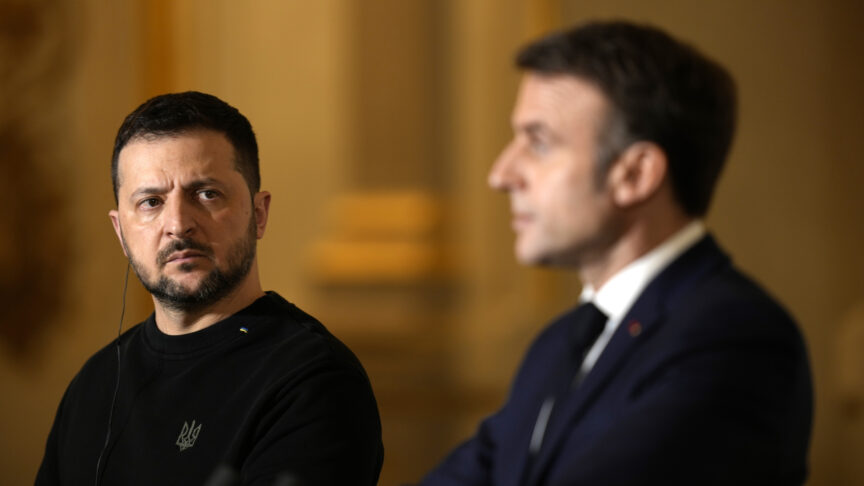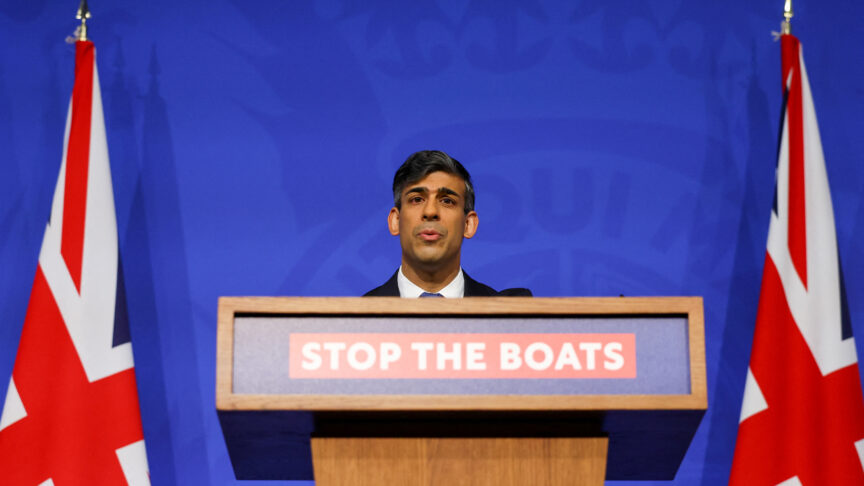What does the financial crisis mean for EU foreign policy?
The financial crisis has implications far outside the finance and economic sectors. What does it mean for the EU’s foreign policy?
A version of this article was first published in EUOBSERVER
In a few months, the financial crisis has changed everything – the nature of capitalism, the appropriate role of the state in managing markets, the limits of government action to name a few. The global financial crisis is now understood to have implications that go far beyond the financial and economic sectors. But what will the crisis do to the EU’s fledgling foreign policy? Uncertainty is the currency of the moment, but even through the cloud caused by imploding financial institutions, some of the likely effects on the EU’s Common and Foreign Security Policy (CFSP) are discernable.
The first consequence of the financial crisis on the EU’s foreign policy is likely to be indirect. The row over protectionism between the Czech leader Mirek Topolanek and France’s Nicolas Sarkozy has thrown into relief the notion of member state solidarity, which lies at the heart of the “European Project.”
The EU states are bound together by technical means but rely for their collaboration on something deeper – the idea that Danes and Romanians share a basic sense of a common destiny as constituent parts of single, albeit undefined, political entity. Once this bond of solidarity is diminished, it is hard to see European governments agreeing on much of anything, let alone politically sensitive areas of public policy, such as foreign affairs.
Second, the financial crisis will cause a decrease in support for the parts of the foreign policy agenda that the EU has often championed. Funding shortfalls, caused by the billion-euro bailouts, may undermine support for “post-material” causes such as environmental initiatives, development assistance, and democracy promotion.
Why fight poverty abroad, many of Europe’s newly unemployed will also ask, if it is rising at home? Post-material causes, because they are newer concerns and not the traditional preserve of member states, have been an opportunity for the EU to establish itself as an important actor in foreign policy. Having staked out its role as a “post-material actor,” the EU’s influence will accordingly decline with the drop in support of a post-material agenda in Europe and beyond.
The third problem relates to the EU as a model and norm-setter. As Richard Youngs of Spanish think-tank FRIDE notes “the EU’s international leverage is based in large measure on the ‘normative appeal’ of its own internal market.” But the row over protectionism has begun raising questions about the viability of Europe’s single market, which guarantees the free movement of goods, capital and people.
Some old EU states, like France, have also shown their willingness to test the EU’s state aid rules in ways never seen before. Together, these developments will have profound effects inside the EU. But they will also diminish the allure of the EU as a model based on the free market and good governance standards. A single market that implodes noisily in the midst of a crisis is hardly an appealing model, even in good times.
Fourth, the financial crisis is likely to jeopardise the EU’s most successful foreign policy to date, its outward enlargement. Predictably, the European Commission and the Czech government, now at the helm of the EU’s rotating presidency, argue that the EU’s enlargement has been positive for the union – including by boosting income and trade growth – and therefore should continue, with enthusiasm.
But enthusiasm for further enlargement was already on the wane before the crisis. Now, the growing resentment over intra-EU labour migration in countries like Britain, Ireland, and Spain is hardly likely to engender support for millions of potential new migrants from Turkey, or the Balkans or for structural adjustment funds to be spent outside of today’s EU. As a new paper by the Center for European Reform notes “With Europeans now fearing for their jobs and incomes, opposition to the union taking in more poor countries will most likely rise further.”
Fifth, as member state governments start to cut their budgets, funds available to the CFSP mechanisms and bilateral development assistance, especially in the new EU countries, are very likely to take a hit. This may be most keenly felt in Europe’s eastern neighbourhood, where the new EU states have complemented European Commission assistance (with a myriad of bilateral programmes). Latvia’s assistance to Moldova, Georgia, Ukraine and Belarus, for example, is likely to be trimmed back. Any appetite for large-scale foreign missions, like the billion-euro EULEX mission in Kosovo, is also set to disappear and not only among new EU states.
European governments may also begin cutting their secondments to the EU institutions. Already some countries have told staff seconded to the EU institutions they should not expect their contracts to be extended after 2009. The Lisbon treaty, which the Irish now look likely to approve, establishes as arguably its most important foreign policy provision a new European diplomatic corps – the External Action Service (EAS). Though the treaty is thin on its details, it does specify that the EAS must comprise in part of staff seconded from the EU’s diplomatic services. But if European governments cannot afford to fill the forthcoming vacancies with first-class secondees, then the organisation will likely never take off.
Though the financial crisis looks like it will mostly have negative consequences for CFSP, not everything is negative. The collapse of bilateral assistance will probably lead to more reliance on EC assistance, which is set in the EU budget until 2013. This could strengthen EU leverage over the pre-accession Eastern European and Balkan countries, particularly as the EU’s strategic competitor in the eastern neighbourhood, Russia, is suffering worse than the EU. The EU position could be strengthened in Ukraine, Moldova and Belarus.
The shine may also be coming off the single market as a model for others to emulate, but so far it has been Britain and France that has taken the intellectual lead in proposing the most creative solutions for re-shaping the international financial system. And as many governments across the world are re-thinking the balance between social values and market-based economies, Europe — with its mixed economies — could also stand to gain.
In sum, the financial crisis poses a severe long-term challenge to the EU’s entire system of economic governance, both to the single market and the common monetary policy. But it also represents a significant short-term risk to the EU’s foreign policy. Though there are a number of bright spots, such as the relative power of EC assistance and the allure of Europe’s economic model, these are outweighed by the risk to the decline of the EU’s post-material foreign policy agenda, the loss of its role as a model for market integration elsewhere in the world and its likely inability to staff the foreign policy bureaucracy envisaged in the Lisbon Treaty.
The European Council on Foreign Relations does not take collective positions. ECFR publications only represent the views of their individual authors.


